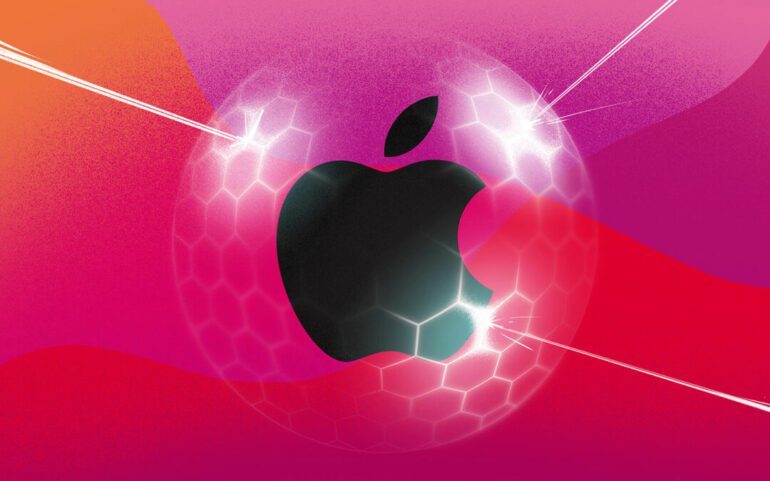TL;DR:
- Apple intensified efforts to incorporate generative AI into its product ecosystem.
- Recent job listings highlight specific roles for AI integration in various departments.
- Bloomberg reports a substantial annual investment of over $1 billion in generative AI.
- Apple aims to leverage large language models (LLMs) for Siri, Messages, and developer tools.
- Rivals like Microsoft, Google, and Meta are already deploying AI features in hardware and software.
Main AI News:
Apple has recently demonstrated a resolute commitment to integrating generative AI into its suite of products. It all began with the introduction of the groundbreaking “Transformer” model-based autocorrect feature on iOS 17 earlier this year. Since then, Apple has been on a mission to usher in a new era of AI-driven innovation.
In the last few weeks, the tech giant has unveiled a series of enticing job opportunities, each tailored to harness the power of generative AI. These listings are indicative of Apple’s ambitious plans. One such opportunity within the App Store division reveals the development of a cutting-edge generative AI-based developer experience platform, designed for internal use while assisting the app development team.
Meanwhile, Apple’s retail department is also making strides in the realm of AI, focusing on a “conversational AI platform (voice and chat)” aimed at enhancing customer interactions. Job descriptions in Apple’s listings emphasize the creation of advanced text-generation technologies, including long-form text generation, summarization, and question-answering capabilities.
Delving deeper into the realm of AI and machine learning, Apple envisions the creation of a “human-like conversational agent” as one of its transformative applications. This visionary approach extends to departments like Siri Information Intelligence, responsible for Siri and Spotlight search, and emphasizes the desire to harness AI models locally on devices.
Notably, this wave of AI-centric hiring differs from Apple’s previous efforts. The company is now explicitly outlining its requirements, reflecting its newfound seriousness about AI integration. In a recent revelation, Bloomberg’s Mark Gurman disclosed that Apple is poised to invest a staggering $1 billion annually to drive the development of generative AI-based products and features. Sources familiar with Apple’s plans believe that not embracing generative AI would be a significant missed opportunity.
Apple’s strategic vision involves leveraging large language models (LLMs) to enhance Siri and the Messages app. This includes augmenting features such as sentence completion in the upcoming version of iOS. Furthermore, Apple is exploring AI-powered functionalities in apps and services like Xcode to empower developers, as hinted in one of its recent job listings. This comprehensive approach extends to AI-generated playlists for Apple Music and AI-assisted content creation for Pages and Keynote.
While Apple has been rumored to be developing its proprietary “Apple GPT,” it has yet to unveil any consumer-facing products. In contrast, its industry rivals, including Microsoft, Google, and Meta, have swiftly integrated AI-driven features across both hardware and software offerings.
As Apple steers toward a future intertwined with generative AI, it is evident that the company is poised to redefine the landscape of technology and innovation, setting new benchmarks for the industry to follow.
Conclusion:
Apple’s dedicated push into generative AI signifies a major shift in its strategy. With substantial investments and concrete job listings, Apple is positioning itself to revolutionize the tech market by enhancing its products with advanced AI capabilities. This move aims to keep Apple competitive in a landscape where AI has become a pivotal factor in product differentiation and user experience.

